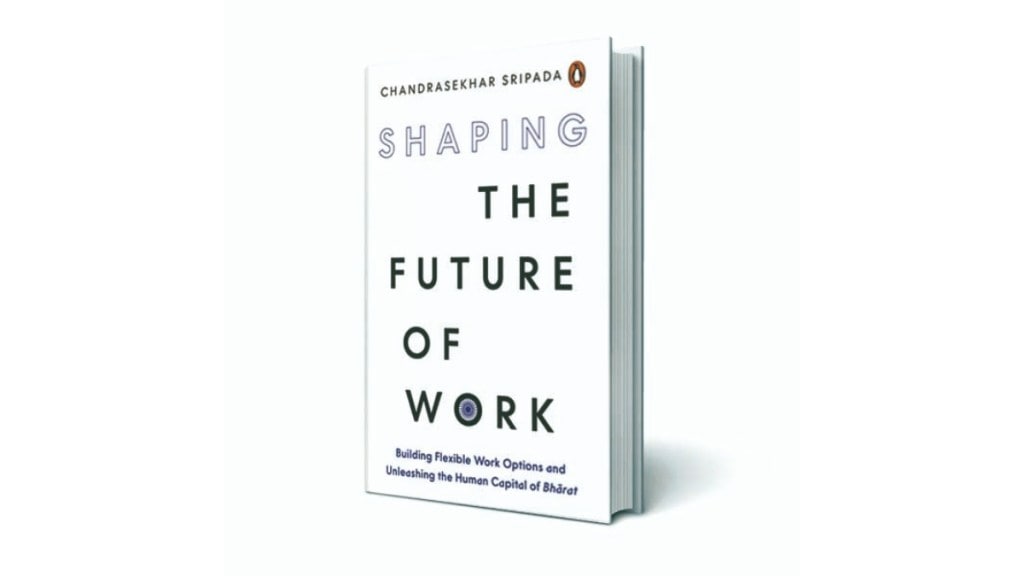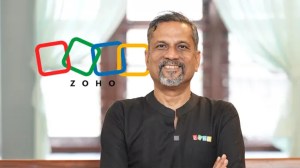By Mohit Hira
Shaping the Future of Work by Chandrasekhar Sripada, a professor at ISB, is clearly a product of the Covid-19 pandemic and a much-researched exploration of how India (and, indeed, the world) will work. Every working professional has experienced the tectonic change that we now refer to as ‘hybrid work’—a term rarely used pre-2020. It is this flexibility that was forced upon unwilling office managers and HR personnel in the aftermath of the lockdown that forms the cornerstone of the author’s travels through time and space.
In almost textbook fashion, Shaping the Future of Work goes into a myriad of aspects that have brought us where we are, and leverages significant amounts of data and references to paint a picture of a workplace that will aid India’s economic development without—hopefully —a repeat of the reverse migration we saw during the lockdown.
In that sense, the book is a necessary journey through the rapidly changing landscape of work in India for both blue- and white-collar workers. Even today, four years after the pandemic brought us to an agonising halt, HR managers and CXOs who lead large teams grapple with the way work has changed. In some ways, Sripada’s book presents itself as a comprehensive guide to navigating these shifting sands. Having spent much of his working career in HR itself, and then in academia, the author is certainly well qualified to hold a position on this subject. He effortlessly blends economics with behavioural change and alludes to the many technological tools now available to present a perspective on how companies and industrial units can adapt to the demands of a workforce that is no longer willing to robotically commute to their sources of livelihood. He lays special emphasis on the urgent need for professional managers and business owners to be flexible, sensitive and inclusive so that the potential of human capital is leveraged fully.
Structured into 12 distinct sections, Sripada begins by reminding us of both India and Bharat and the growing presence of millennials and Gen-Z employees who are often a mere statistic in the oft-quoted demographic dividend that India flaunts in its China + 1 strategy. He maintains that a young India has a unique set of motivators that will continue to compel the creation of flexible and inclusive work environments.
This presents both an opportunity and a challenge as Sripada cites economists, futurists, scientists and leaders of the calibre of John Maynard Keyes, Paul Saffo, Charles Darwin and Mahatma Gandhi. The book underscores the importance of discarding cookie-cutter methods and understanding anew how younger employees go beyond lip service to genuinely prioritise work-life balance. A 2022 Microsoft Work Trend Index Annual Report, for instance, mentions that “51% of Gen-Z employees are more likely to prioritise health and well-being over work”. Organisations that ignore this and presume that only a payslip motivates its workforce are certain to be ignored themselves by millennials.
This is why he also argues that traditional, rigid work models are facing obsolescence against the combined onslaught of technological developments and changing employee expectations. He makes a strong case for the adoption of remote work, flexible hours and gig work that will not just help attract and retain top talent but also increase productivity. To ensure that a young workforce remains engaged, Sripada stresses the importance of diverse, inclusive workplaces that cater to all employees, regardless of where they come from.
The book also devotes space to the impact of digital transformation on offices—artificial intelligence, automation and data analytics have changed job roles and upturned conventional organisational structures. The talent management handbook has already been rewritten and HR teams that don’t integrate these technologies into their talent management strategies will struggle. All of this, emphasises the author, is meant to ensure that the divide between India and Bharat is reduced, and that the country reaps the dividends of economic progress without ignoring any section of the population.
But culture cannot change unless an organisation’s leadership acknowledges and actively participates in this change— just as the workforce and its HR managers must evolve, so too must a business owner or manager. Replete with examples, the book transcends theory and serves as a practical guide for them.
A concluding chapter presents a set of real concerns around remote work, the digital divide, home versus office as workspaces, moonlighting and company culture being compromised by flexibility. This section is one that naysayers would do well to read because, for every one of these worries, Sripada presents a strong point and a counterpoint. In short, Shaping the Future of Work is a must-read for anyone who has anything to do with ensuring the success of an organisation.
Mohit Hira is co-founder, Myriad Communications, and venture partner at YourNest Capital Advisors
Name: Shaping the Future of Work: Building Flexible Work Options and Unleashing the Human Capital of Bharat
Author: Chandrasekhar Sripada
Publisher: Penguin Random House
Pp 224, Rs 599









